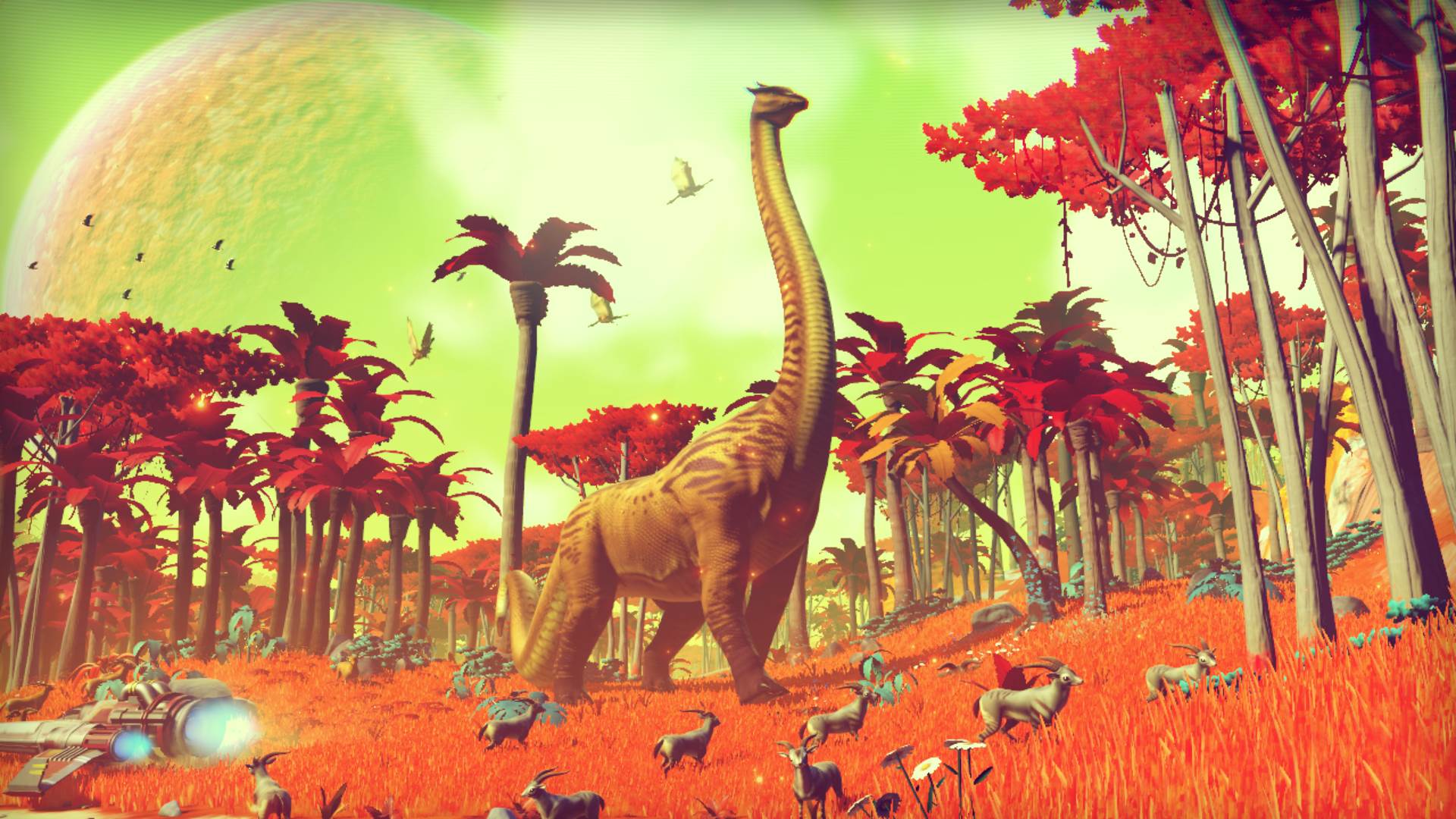Vlambeer dev explains why the huge No Man's Sky day-one patch is a necessary evil
Rami Ismail says developers aren't lazy, they're just hostage to the system.

The day-one patch for No Man's Sky, as we learned yesterday, will be huge, with new features including larger galaxies, a greater variety of planetary atmospheres, creature feeding, advanced combat techniques, and all kinds of other cool-sounding stuff. Basically, it's the game in the condition as it was meant to be at launch, which could lead you to reasonably wonder why it wasn't in that state right from the get-go. Instead of patching all this stuff in after the fact, why not just make sure the game is “finished” before it goes out the door?
The short answer, as explained in a hefty blog post by Rami Ismail of Nuclear Throne developer Vlambeer, is “consoles.” The long and proper answer is obviously more complicated than that, but one of the core concepts of his explanation is that “consoles are platforms and devices that come with an expectation of quality,” and the systems in place that are meant to ensure that level of quality is maintained are deeply rooted in an earlier, pre-digital era.
“The most egregious example of this is called ‘certification’. On computer platforms, stores like Steam, Humble, GOG and itch.io have decided that developers just have to deal with the fallout of releasing a broken product themselves, and thus allow you to push a product or patch at any point whatsoever (they often do a pre-release check of your store page, though!). Consoles on the other hand, come from the ‘Seal of Quality’ mindset. To ensure that quality, they use a system called ‘certification’,” Ismail wrote. “What you have to imagine when it comes to cert, is a giant book of checkboxes. There’s an absurd amount of them, and they could be different not only per platform, but per territory (for example, a European build has different certification rules than a US one, requiring differences between the two), and sometimes even between a patch, a DLC, and a release version.”
Even just getting a game into the certification process is a tricky bit of business. “In most cases, you have to fill out a weirdly complex form for your submission, and then ‘book a slot’ of sorts, or wait until you get an OK to submit your game. Since the people testing games aren’t infinite, you need to let people know when you’re submitting your build. So you check which dates are available, and usually there’s a free slot a few days from today. If your build isn’t in a certain amount of time ahead of that, your slot can be lost, and you’ll have to ‘book’ a new one,” he continued. Naturally, if the submission is rejected for any reason, your slot can be lost as well, and if the game fails during testing, you're starting over from square one.
Predictably, that leads to situations where developers will submit a stable, functioning build of a game for certification relatively early in order to get approved and set a release date, after which they get down to actually finishing the game. And that means a huge launch day patch, rather than a “complete” digital release, because the certified version of the game, which in the case of boxed releases must be printed, boxed, and distributed between the completion of certification and the actual release, is months out of date by the time it goes live.
“If consoles operated like Steam did, No Man’s Sky wouldn’t have a Day 1 Patch, because the build you’d download and play when it comes out would’ve been submitted comfortably a few days before launch,” Ismail wrote. “Day 1 Patches aren’t necessarily a failure on the developers or the platforms side, they are the result of people that care about what they make, trying to deliver the game the audience expects by the date they expect it, while everybody involved is struggling with outdated systems on cutting-edge technology.”
The impact of day-one patches is obviously of greater significance to console gamers than those who prefer the PC, because consoles remain focused on physical releases while the PC marketplace—for indies, at the very least—is a far more digital (and far less regulated) proposition. But physical editions of PC games still exist, and so do day-one patches: The Division, for one recent example, underwent a major update on the day it went live.
The biggest gaming news, reviews and hardware deals
Keep up to date with the most important stories and the best deals, as picked by the PC Gamer team.
No Man's Sky comes out on August 12. The day-one patch notes (which include some spoilers, so beware) are available here.

Andy has been gaming on PCs from the very beginning, starting as a youngster with text adventures and primitive action games on a cassette-based TRS80. From there he graduated to the glory days of Sierra Online adventures and Microprose sims, ran a local BBS, learned how to build PCs, and developed a longstanding love of RPGs, immersive sims, and shooters. He began writing videogame news in 2007 for The Escapist and somehow managed to avoid getting fired until 2014, when he joined the storied ranks of PC Gamer. He covers all aspects of the industry, from new game announcements and patch notes to legal disputes, Twitch beefs, esports, and Henry Cavill. Lots of Henry Cavill.

